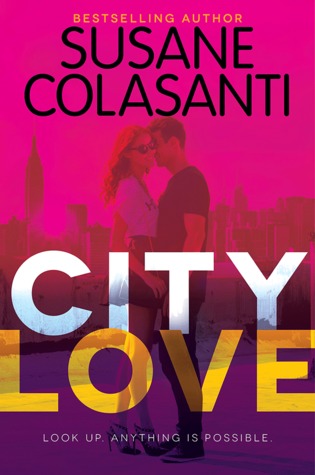Currently, I am reading Ground Zero: When the Journey Takes You Home by Agustinus Wibowo. I have finished half of it yet I feel so attached and love his story. How he depicted his vagabonding journey over China, Nepal, and India and how he who grew up as minority in Indonesia has a unique perspective in seeing the world. How he lost and questioned his identity though in the end he started to truly know himself, bit by bit.
Currently, I am living in Sweden, pursuing my master degree in KTH. Living as minority here makes me able to relate myself to him, though is not quite apple to apple comparison. He was a Chinese grew up in Indonesia and found himself being a minority. But then, he end up studying in China only to find himself being a minority as he was considered as foreigner. In my side, I am the only muslim in my programme in KTH. I am the only one who use hijab. The only one who has to sneakily go outside the class, looking for empty room to pray.
It was hard for him to adjust himself in China, the land he had been yearning for. How he felt he lost his identity and just being anonymous in the ocean of human in China. He tackled it by wearing Indonesian skullcaps and sarongs wherever he went, giving him a temporary pleasure of being a unique individual. The same things also happened to me. Here, people are nice yet they emit cold and take-care-your-own-business aura. They are people that nice to work with yet it is hard to get personally close to them.
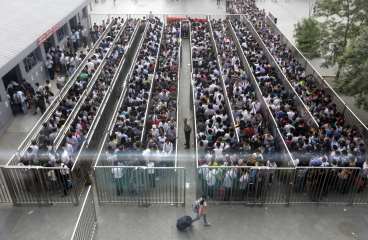 Passengers, seen through glass, line up and wait for a security check during morning rush hour at Tiantongyuan North Station in Beijing May 27, 2014. Beijing tightened security checks at subway stations since last Saturday, following an attack in China’s troubled Xinjiang region which killed 31 people on May 22, the deadliest act of violence in the region in years. REUTERS/Jason Lee (CHINA – Tags: TRANSPORT CRIME LAW CIVIL UNREST)
Passengers, seen through glass, line up and wait for a security check during morning rush hour at Tiantongyuan North Station in Beijing May 27, 2014. Beijing tightened security checks at subway stations since last Saturday, following an attack in China’s troubled Xinjiang region which killed 31 people on May 22, the deadliest act of violence in the region in years. REUTERS/Jason Lee (CHINA – Tags: TRANSPORT CRIME LAW CIVIL UNREST) 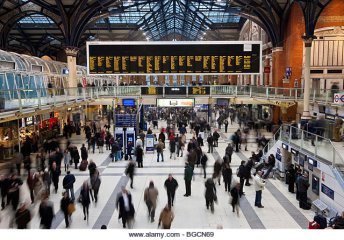
Ocean of human in Beijing (left) and Stockholm (right)
Another similarity of he and I is, I also went travelling to some countries in Europe though it was not a vagabonding journey in Central Asia like him. I didn’t go on journey for months or years like him. I did it during semester break. And I also didn’t dare myself to mingle or dissolve deeply to the culture or with people of countries I visited. I think, going there is enough, feeling the atmosphere, visiting the building, talking with some strangers, and walking around in the street are enough. Well, he indeed takes a definition of travelling to a higher level, a level that I can’t achieved (for now).
While he was on quest from Beijing to Urumqi to Kashgar to Ngari to Lhasa to Kathmandu to New Delhi and end up in Mumbai before continues his quest to Kashmir, I explored Zagreb then Ljubljana then Venice then Cinque Terre then Turin then end up in metropolitan city of Milan. While he was stuck in 90 hours journey on the train packed with people in India, I was stuck in stuffy train on the way to Milan. While he visited Jokhang Temple in Lhasa, Tibet, I visited Alhambra Palace in Granada, Spain. Both ancient buildings are totally different but for sure we were in awe.
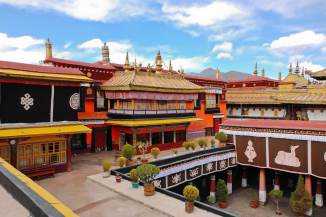
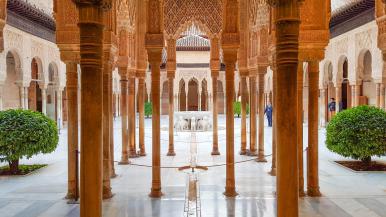
Jokhang Temple (left) and Alhambra Palace (right)
His journey made him questioning a happiness and fulfillness. One time, he found it weird on how Tibetan dedicated most of their wealth, time, and energy for their beliefs. He saw with his own eyes some pilgrims circumambulated Kailash mountain on their hands and knees.
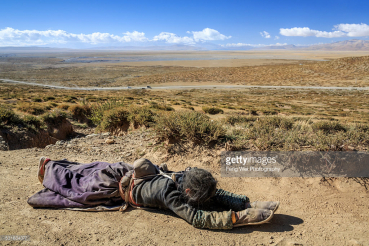
They lived in poverty yet their eyes were full with serenity. On the other hand, in Beijing, people are busy with competition and working hard with no end. The students were so desperate to achieve a high score but when they failed, they stressed, and few of them took suicide. Well, this full of rush and stress life is not just happening in Beijing but all around the world, mostly in metropolitan city. Jakarta, the city I grew is not the exception.
Then, I ask myself. Before, I was so eager to continue my study abroad and I achieved it. Then, I fulfilled my dream that I had been yearning for since my childhood, to explore the world. I fulfilled it by exploring around 12 countries in Europe. Before, I was ready to set my new targets – perhaps marriage, stable job, and having a children – but after read his book, I wonder “Can I feel happy without achieving the target and just be happy as who I am with what I have now?”
As I said before, the journey he took had shaped himself to be he is now. He started to found himself along his journey. But, what about me? Do I know myself better now? or all of these things-living abroad and travelling-just make me questioning myself more?
But for sure, I can say the journey only help me to understand myself better. In the end, the answer is lying deep down in myself. Where I can find the serenity, peace, or let’s say my paradise in this world? As he said “everyone has their own paradise” so I have to find my own paradise and I am pretty sure that its definition will evolve as time goes by.
Well, I will close this ramble thought by quoting his statement which I approve wholeheartedly. “The fantasy (or the paradise or the happiness, whatever you might call it), the more you dreamed of it, the more perfect it became; and the more perfect it was, the more fragile it became; and the more fragile it was, the more likely it was to disintegrate when hit by reality”. So, I guess I will take my time, slowly, bit by bit but sure and it’s totally okay even if I fall and want to take a rest for a moment since this will be a long journey till I reach the real paradise after this life (InsyaAllah).
All in all, I highly recommend this book. This is a high quality book, written not just by words but also with his life and his heart. I know it must be not easy for him to be so openly describe his family, his lowest point, and his heartbreak along his journey yet he let us take a glimpse of those. I wish I can write a book like this someday in the future!



